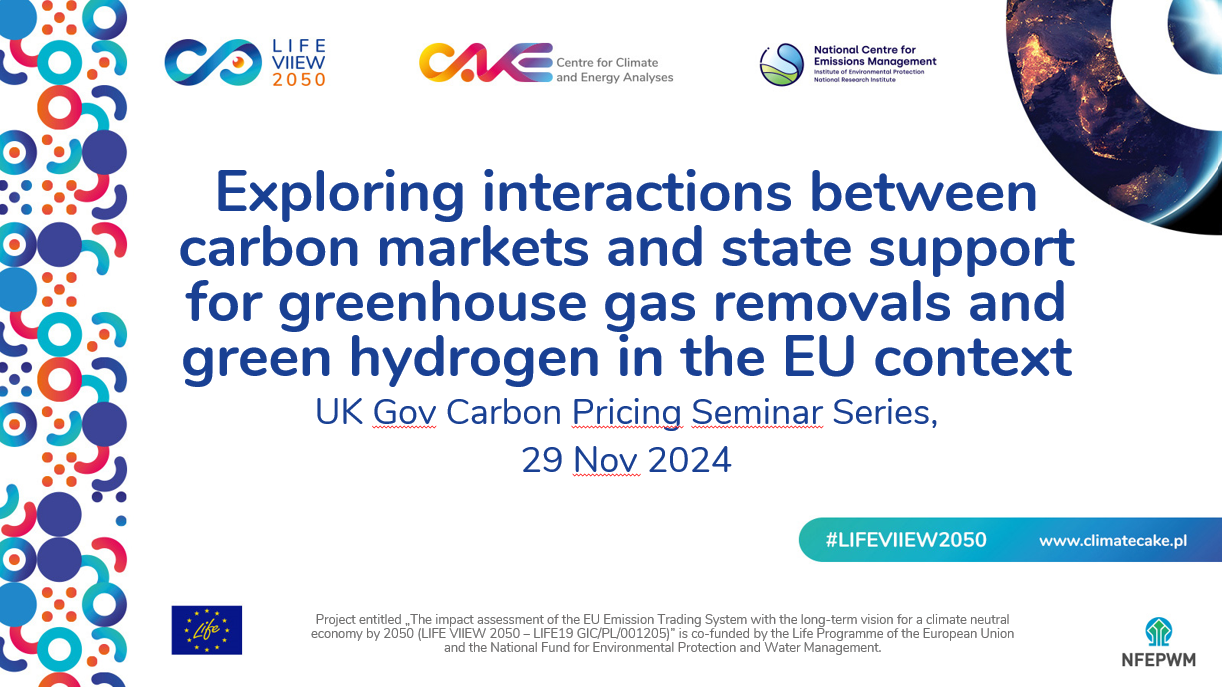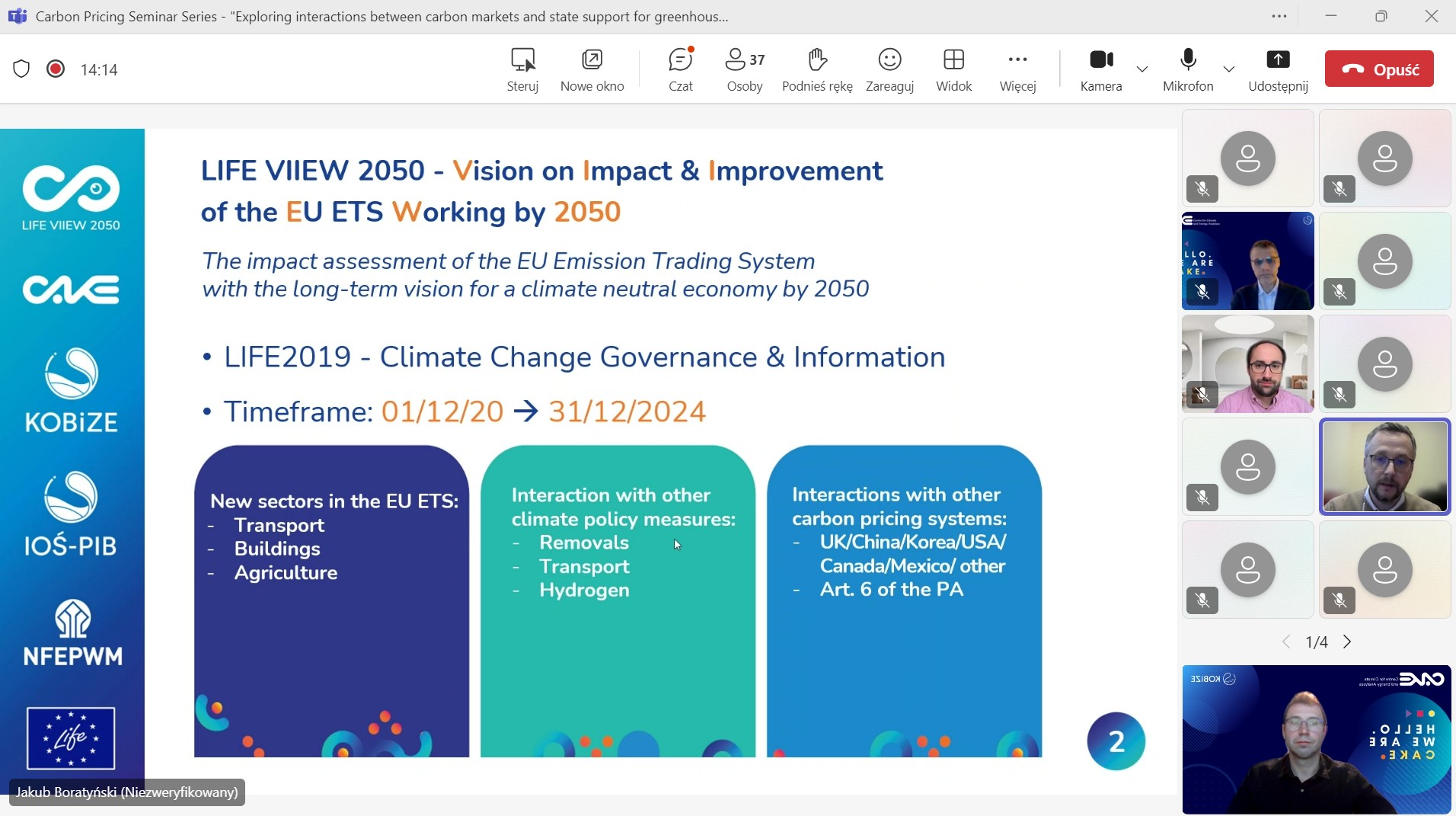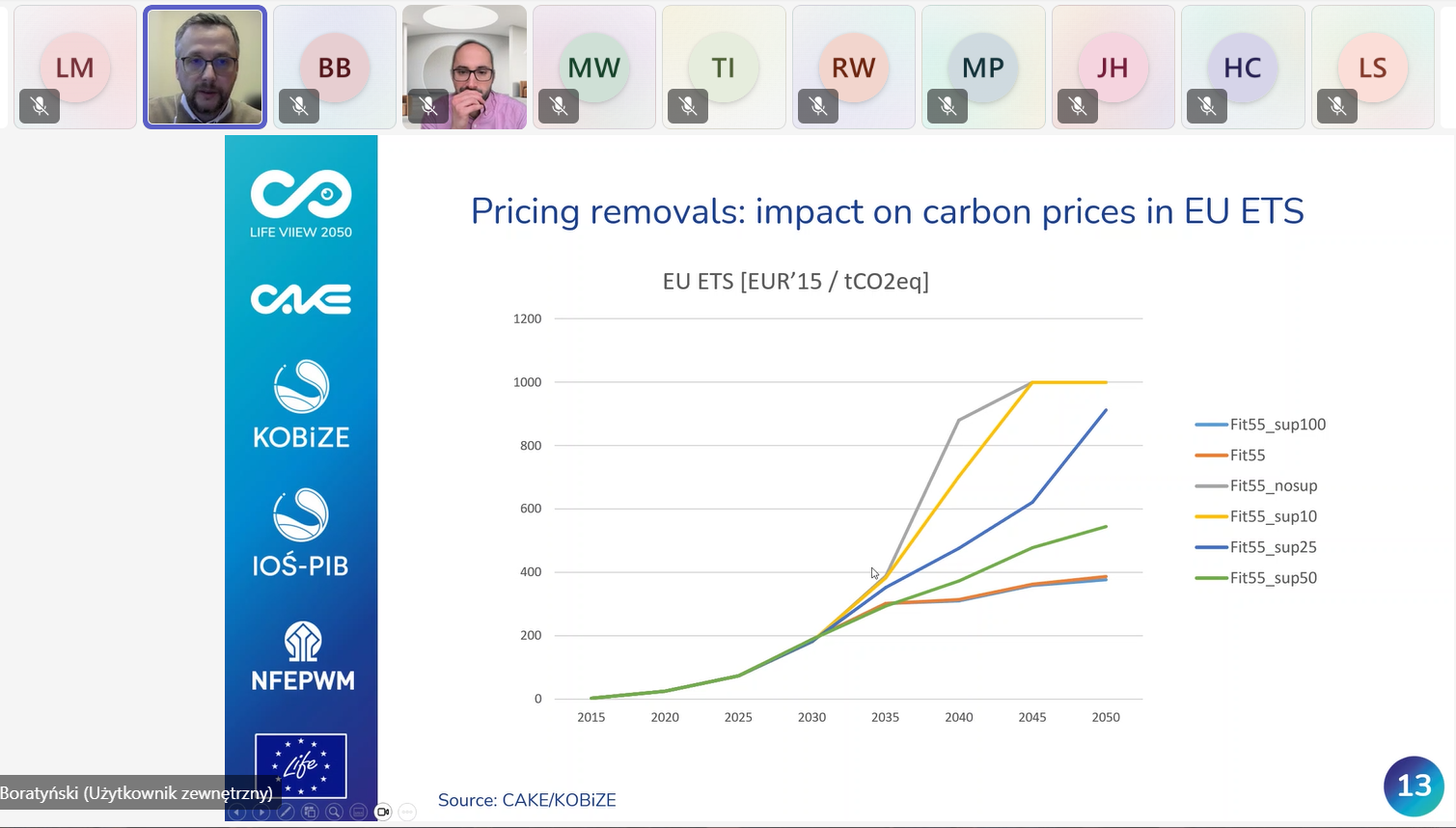CAKE and LIFE VIIEW 2050 at UK Carbon Pricing Seminar, 29.11.2024
On the 29th November 2024 CAKE and KOBIZE Experts Jakub Boratyński, Maciej Pyrka, Igor Tatarewicz, Michał Lewarski, Wojciech Rabiega, Adam Wąs and Paweł Kobus participated in the Carbon Pricing Seminar Series – “Exploring interactions between carbon markets and state support for greenhouse gas removals and green hydrogen in the EU context” for the distinguished colleagues from the UK Department for Energy Security and Net Zero.
Maciej Pyrka, Head of the Strategy, Analysis and Auction Unit at KOBIZE/CAKE gave a brief overview of CAKE work, the models and projects in which the CAKE Team is currently engaged.
Jakub Boratyński from CAKE presented the results of the LIFEVIIEW2050 project, co-funded by the EU’s LIFE Programme. His presentation focused on the integration of carbon markets with state support for GHG abatement and green hydrogen in the EU and UK. Using advanced economic and sectoral modelling, he explored how policies such as carbonpricing and subsidies for technologies such as BECCS (bioenergy with carbon capture and storage) and green hydrogen affect the EU’s progress towards climateneutrality by 2050. Boratyński also presented CAKE’s analytical model tools used in the project (e.g. CGE, energy, agriculture, transport models). He explained their functionalities, such as analysing interactions between sectors, projecting emission reductions and assessing the economic impact of different climate policies.
Key findings & main conclusions:
- Importance of carbon removals: achieving climate neutrality is impossible without removals, as some emissions cannot be completely eliminated. Pricing removals significantly reduces carbon prices in the EU ETS (from 880 EUR/tCO2 to 310 EUR/tCO2 in 2040 with full pricing) and increases GDP and consumption.
- Role of hydrogen subsidies: subsidies accelerate the implementation of technologies based on green hydrogen. Without it, the scale of hydrogen consumption in 2030 is very modest. At the same time, the increased hydrogen consumption has an impact on a small reduction (about 10%) in the cost of emissions in the EU ETS system.
- Impacts on agriculture: GHG pricing in agriculture reduces emissions but increases production costs, leading to higher prices for agricultural products. Afforestation helps to offset emissions but cannot fully compensate.
We invite you to check our VIIEW on EU ETS 2050 analyses:
 VIIEW on EU ETS 2050: Linking EU ETS with other carbon pricing mechanisms (3.0 MiB, 252 hits)
VIIEW on EU ETS 2050: Linking EU ETS with other carbon pricing mechanisms (3.0 MiB, 252 hits) VIIEW on EU ETS 2050: Exploring synergies between the EU ETS and other EU climate policy measures - carbon removal, hydrogen, and sectoral transport policy (3.3 MiB, 497 hits)
VIIEW on EU ETS 2050: Exploring synergies between the EU ETS and other EU climate policy measures - carbon removal, hydrogen, and sectoral transport policy (3.3 MiB, 497 hits)

 Reset ustawień
Reset ustawień Kontrast
Kontrast Widok
Widok Czytelność
Czytelność Czcionka
Czcionka Znaki
Znaki Interlinia
Interlinia Słowa
Słowa Akapity
Akapity Deklaracja dostępności
Deklaracja dostępności












